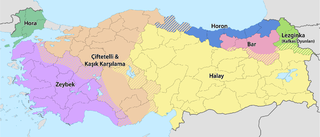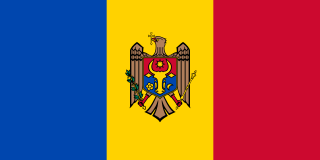 W
WBalkan brass, popularly known by the Serbian name Truba, is a distinctive style of music originating in the Balkan region as a fusion between military music and folk music. In recent years, it has become popular in a techno-synth fusion throughout Europe, and in pop music in the Anglo-American sphere and throughout the world. Songs like Worth It by Fifth Harmony have brought the style to a new audience. In traditional form, it is popular throughout the Balkans, especially in Serbia, North Macedonia, Bulgaria, Moldova and Romania, although the turbo-folk variety attracts larger audiences. The energetic and fast beats encourage dance and are egalitarian, often resulting in participation by the entire audience; this unpretentious relationship with audiences, highly charged energy and loud and joyful performances by highly skilled musicians has contributed to its successes. Fans of bands inspired by Balkan bands, such as Gogol Bordelo, often state that it is a type of music better experienced than listened to.
 W
WČoček is a musical genre and dance that emerged in the Balkans during the early 19th century. It features prominently in the repertoire of many Romani brass bands.
 W
WFanfare Ciocărlia is a twelve-piece Romanian Romani Balkan brass band from the northeastern Romanian village of Zece Prăjini, Iași. The band is made up of Roma musicians, and they are recognised as one of Europe's most popular contemporary Romani bands. Fanfare Ciocărlia are best known for its fast, high-energy music with complex rhythms and high-speed staccato clarinet, saxophone and trumpet solos.
 W
WPolyphony is a type of musical texture consisting of two or more simultaneous lines of independent melody, as opposed to a musical texture with just one voice, monophony, or a texture with one dominant melodic voice accompanied by chords, homophony.
 W
WKarsilamas is a folk dance spread all over Northwest Turkey and carried to Greece by Greek refugees. The term "karşılama" means "encounter, welcoming, greeting". The dance is popular on Northwestern areas of Turkey, especially on wedding parties and festivals.
 W
WSimon Kiselicki is a Macedonian jazz pianist, composer and arranger. He is considered "one of the most important personalities of the Macedonian jazz scene", known for his solo and group work as the Simon Kiselicki group, as well as his work in Macedonian bands Klerzo and La Colonie Volvox, and his contributions across Europe and the Balkans. Kiselicki is also one of the first musicians who brought jazz music to Macedonian stages and clubs, at the start of the 90s.
 W
WLa Mano Ajena is a Chilean band founded in 2002 that mixes rhythms from Eastern Europe, Latin America, France and Russia, blending all these sounds in a pastiche that also unites the tendencies of each member of the band: rock, punk, Latin American folklore and theater music. This musical project is unique in Chile, and its hybrid sound has been called "klezmer a la chilena" by press.
 W
WMoldovan music is closely related to that of its neighbour and cultural kin, Romania. Moldovan folk is known for swift, complex rhythms, musical improvisation, syncopation and much melodic ornamentation. Pop, hip hop, rock and other modern genres have their own fans in Moldova as well. Modern pop stars include O-Zone, a Romanian and Moldovan band whose "Dragostea din tei" was a major 2004 European hit, guitarist and songwriter Vladimir Pogrebniuc, Natalia Barbu, who is well known in Germany, Romania and Ukraine, and Nelly Ciobanu. The band Flacai became well known in the 1970s across Moldova, turning their hometown of Cahul into an important center of music.
 W
WLike the surrounding Balkan countries, Bosnia and Herzegovina has had a turbulent past marked by frequent foreign invasions and occupation. As a result, Bosnian music is now a mixture of Slavic, Turkish, Central European, Mediterranean, and other influences.
 W
WThe music of Bulgaria refers to all forms of music associated with the country of Bulgaria, including classical, folk, popular music, and other forms.
 W
WThe music of North Macedonia refers to all forms of music associated with North Macedonia. It share similarities with the music of neighbouring Balkan countries, yet it remains overall distinctive in its rhythm and sound.
 W
WMusic of Yugoslavia was the music of Yugoslavia.
 W
WPolyphony is a type of musical texture consisting of two or more simultaneous lines of independent melody, as opposed to a musical texture with just one voice, monophony, or a texture with one dominant melodic voice accompanied by chords, homophony.
 W
WThe Rugova war dance is a traditional Albanian sword dance named after the Rugova region in Kosovo.
 W
WKatič and Sveta Neđelja are two small islets on the Adriatic Sea, located opposite of the town of Petrovac in the Montenegrin municipality of Budva.
 W
WTallava or Talava is a music genre originating from Albanian-speaking communities in North Macedonia as well as in Kosovo, with a presence in Albania. Having originated in the Roma community in Kosovo in the 1990s, it is oriental-sounding. It is becoming increasingly popular in Albania and North Macedonia. It is identified as part of the wider Pop-folk genre of the Southeastern Europe, which includes Chalga from Bulgaria, Skiladiko from Greece, Manele from Romania and Turbo-folk from Serbia.